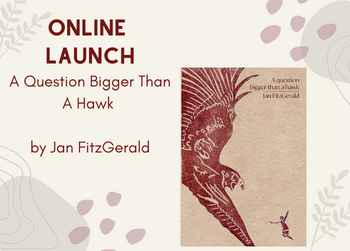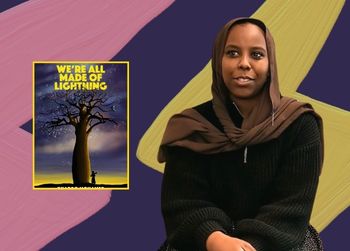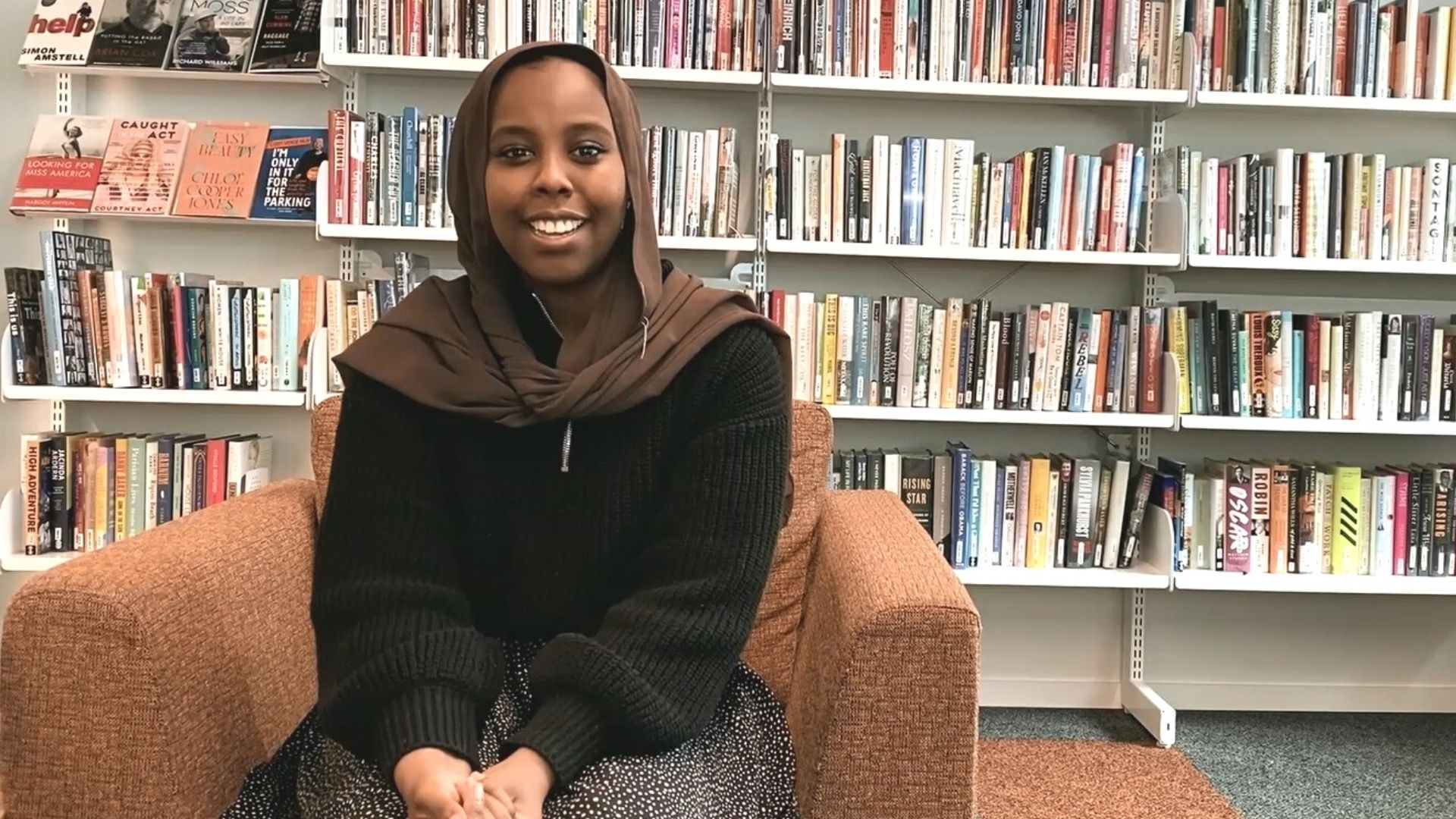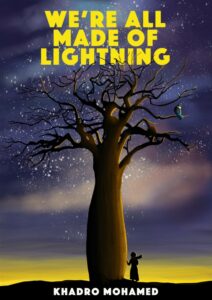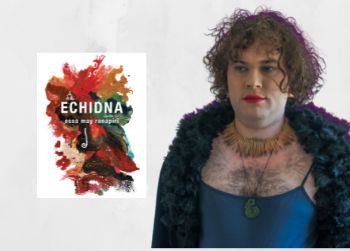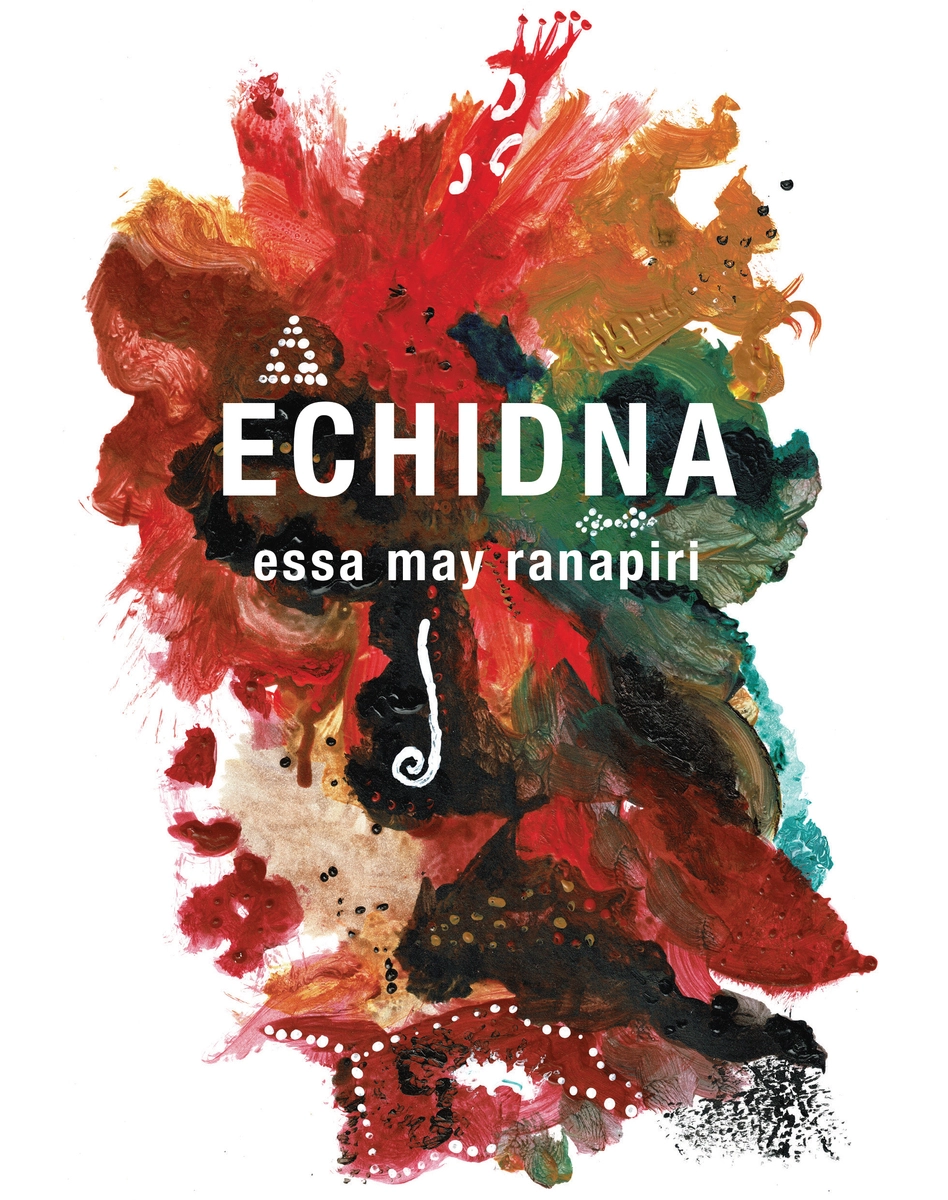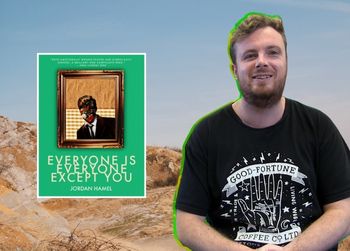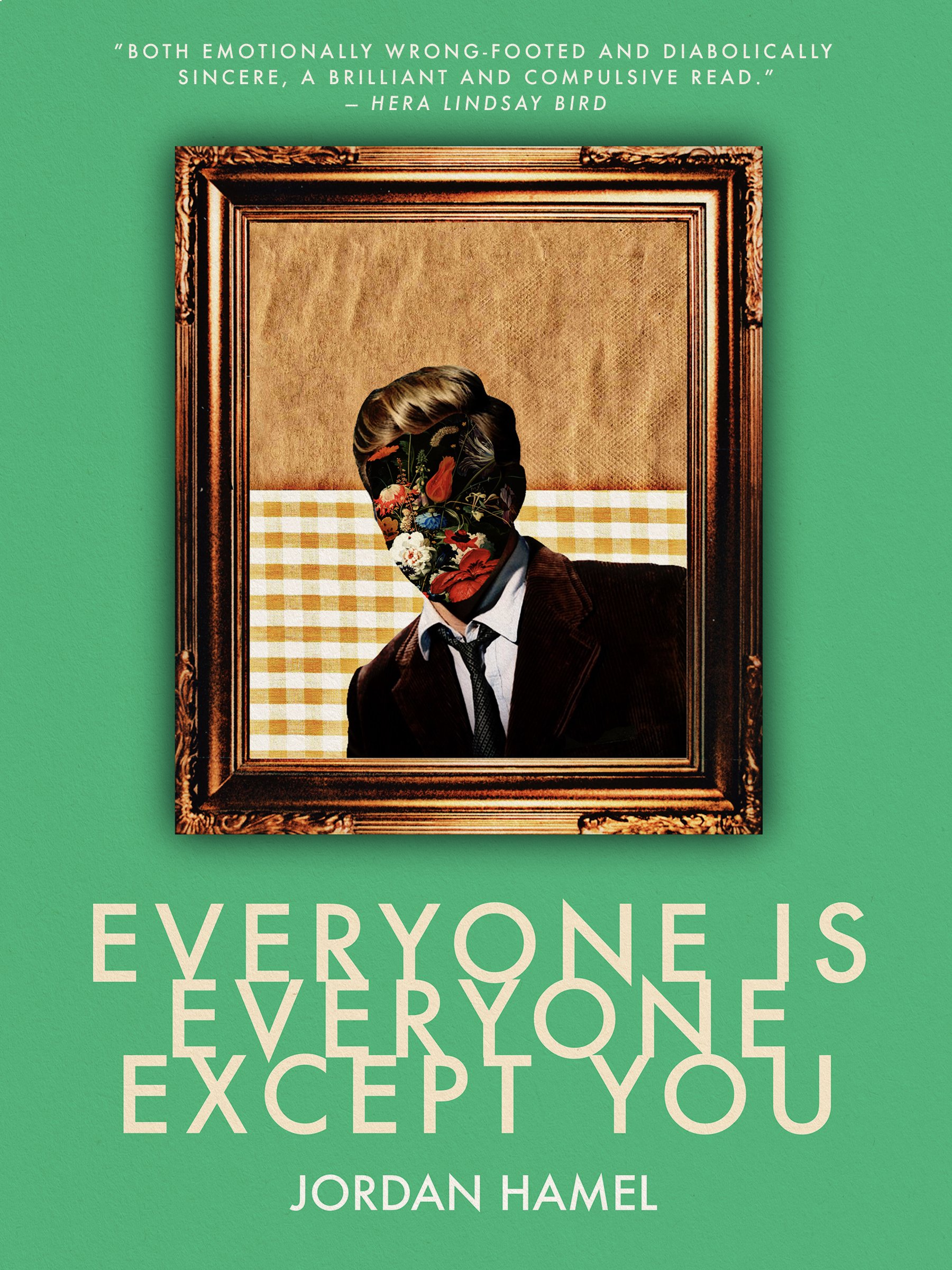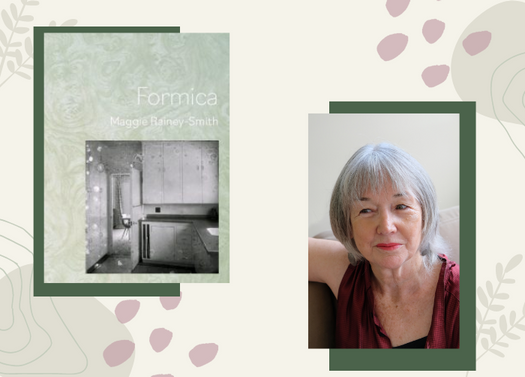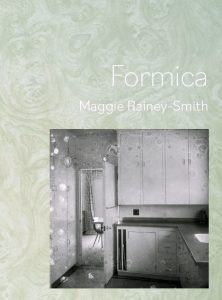Chased by a question
bigger than a hawk,
I raced like a rabbit
in fields without cover,
searching for a bolt-hole
among blackberries and hedges.
Award winning Artist and poet Jan FitzGerald lives in Napier and A Question Bigger Than A Hawk is her fourth collection of poems. This wide-ranging wonderful collection of poems written with urgency and compassion, explores many threads such as mothers and daughters, 1940s / 50s childhoods, love of the natural world, the secret lives of women and the art of getting older, and our complicated relationship with machines and household appliances.
Normally such a collection would mean a big spectacular live launch event but sadly, for health reasons, Jan couldn’t do a live launch event for this collection. Instead, we have brought in two other award-winning poets, Maggie Rainey-Smith and Rachel McAlpine, to be part of a very special online launch event which will air on our website and YouTube account on Monday 11 July from twelve noon and will be available to watch from that time onwards. These two fabulous poets pay tribute to Jan’s new book and examine her work in comparison with their own.
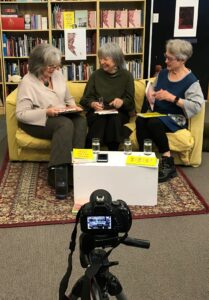 Wellington novelist, essayist and poet Maggie Rainey-Smith’s book Formica was launched earlier this year and Wellington novelist, web-writer, blogger, and poet Rachel McAlpine celebrated her 80th birthday two years ago with How To Be Old. And to chair this very special online launch event poet, author and publisher at The Cuba Press, Mary McCallum.
Wellington novelist, essayist and poet Maggie Rainey-Smith’s book Formica was launched earlier this year and Wellington novelist, web-writer, blogger, and poet Rachel McAlpine celebrated her 80th birthday two years ago with How To Be Old. And to chair this very special online launch event poet, author and publisher at The Cuba Press, Mary McCallum.
This online launch celebrates this new collection of poems and Jan’s work, creating an illuminating, entertaining, informative and highly-recommended watch. Our heartfelt thanks go out to Mary McCallum, Maggie Rainey-Smith and Rachel McAlpine.
A Question Bigger Than A Hawk can be ordered at all good bookstores – with personally signed copies available at Wardini’s in Napier if you order now – and on thecubapress.nz.
Watch the launch below or visit our YouTube channel here.
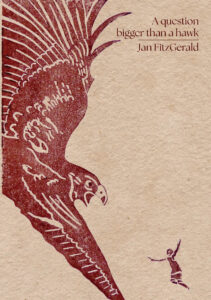 A Question Bigger than a Hawk / FitzGerald, Jan
A Question Bigger than a Hawk / FitzGerald, Jan
” A Question Bigger Than A Hawk is Jan FitzGerald’s fourth collection of poems. This wide-ranging wonderful collection of poems written with urgency and compassion, explores many threads such as mothers and daughters, 1940s / 50s childhoods, love of the natural world, the secret lives of women and the art of getting older, and our complicated relationship with machines and household appliances.” ( Adapted from catalogue )
Wayfinder : new & selected poems / FitzGerald, Jan
“Contains the poems Letter to Tomé Torihama (1902-1992), Seahorse, Sky burial , Wildebeest, War pigeons, Cows crossing, Netsuke, Gannets, Sea captain, When I die , Cricket girl, Chrysalis, A mother’s magic, Ticket 250654 RMS Titanic, The cormorants, Winter, Miss Molloye, Cycling, Aubade, Family tree, Highland cattle-beast, Ruaumoko , The doll, The joy gatherers, Holding a tuatara, Bees, Mr Rogers , Yesterway, Mike, In memory of Budgie B. Bird , Fire!, Afterwards, Old orchard, Cricket riff, Pasifika girl, In praise of bees, Frogs, Whale and Wayfinder.” ( adapted from Catalogue)
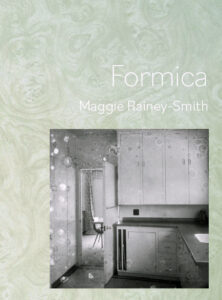 Formica / Rainey-Smith, Maggie
Formica / Rainey-Smith, Maggie
“‘Formica’ begins in 1950s Richmond with the author’s family struggling in the aftermath of a war that took her father to Crete to fight and then Poland as a prisoner of war. At the Formica kitchen table, Maggie’s mother is reciting poems while chopping the veggies for tea. Maggie listens while tying her boots for marching practice. Poems follow her as she makes her way in the world – working as a typist, doing her OE, becoming a wife, a mother and grandmother … An unsentimental writer of honesty and humour, Maggie nods to the lives of all women of her generation .” (Adapted from Catalogue)
Daughters of Messene / Rainey-Smith, Maggie
“Your history, Artemis, is full of female warriors.” Artemis has the name of a goddess, but she has trouble living up to it. Instead she usually just runs away. She’s running now … away from the married man she’s been seeing, and the Greek community in New Zealand who think they know what’s best, and into the arms of family in the Peloponnese that she’s never met. She carries her mother’s ashes and an ipod with recordings, which bit by bit tell the shocking story of what happened to Artemis’ grandmother during the Greek Civil War. ” (Adapted from Catalogue)
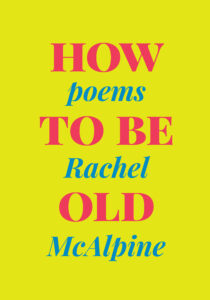 How to be old : poems / McAlpine, Rachel
How to be old : poems / McAlpine, Rachel
“Wellington writer Rachel McAlpine blogs and podcasts about living and ageing and is celebrating her 80th birthday with a book of poems. How to Be Old is an explosion of humanity on the page with some practical tips from the author and sage advice from Elsie aged five.” (Adapted from Catalogue)
Humming / McAlpine, Rachel
“Living in idyllic Golden Bay, artist Ivan is plagued by a low frequency humming noise: is it whale song, tinnitus, electro-magnetism, a CIA weapon or the voice of God? Worse, Ivan is bored. His sensible lover, Jane, neglects her cafe to support his increasingly bizarre attempts to outwit the Hum. But he is most attracted by the spiritual solutions offered by warrior-woman Xania, a fanatical t’ai chi teacher with links to Argentina. Xania manipulates the monstrous ego of Ivan (who is too famous for his own good) and devises a scandalous fundraising plot involving Powelliphanta, New Zealand’s beautiful native snails.” (Adapted from Catalogue)
XYZ of happiness / McCallum, Mary
““These are poems of happiness… as it comes, when it’s missing and when it is hoped for. Pastel and glib or orange and high-vis, it is almost invisible in a chemical cocktail and strangely visible – but unreachable – in an equation etched into glass. It is a dog unleashed on the grass and a man going about measuring the Earth. It can be heard at the end chemotherapy and in a conversation in the kitchen while a boy drowns in the harbour outside. It wears a pink T-shirt, spins with sycamore seeds and spends a whole poem finding a yellow it can live with.” (Description from Mākaro Press)
The blue / McCallum, Mary
“Lilian lives in an isolated island community at the mouth of Tory Channel trying to make the best of a life that has at its core a secret grief. It is 1938 and for three months of every year the men take to the sea to hunt whales with fast boats and explosive harpoons. This year, the whales aren’t the only ones returning – Lilian’s troubled son Micky has come home too. In this rugged, unsettled world, things are not always what they seem. ” (Adapted from Catalogue)


